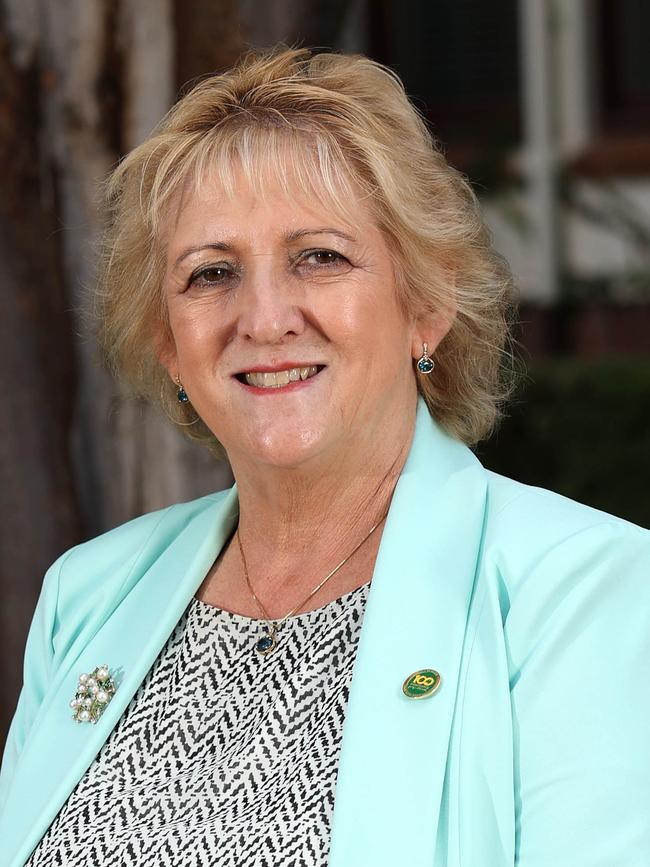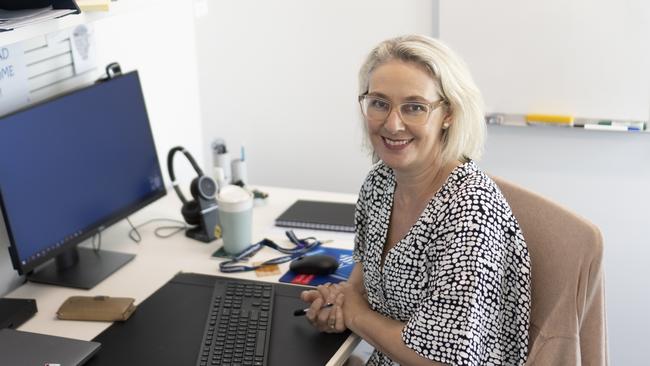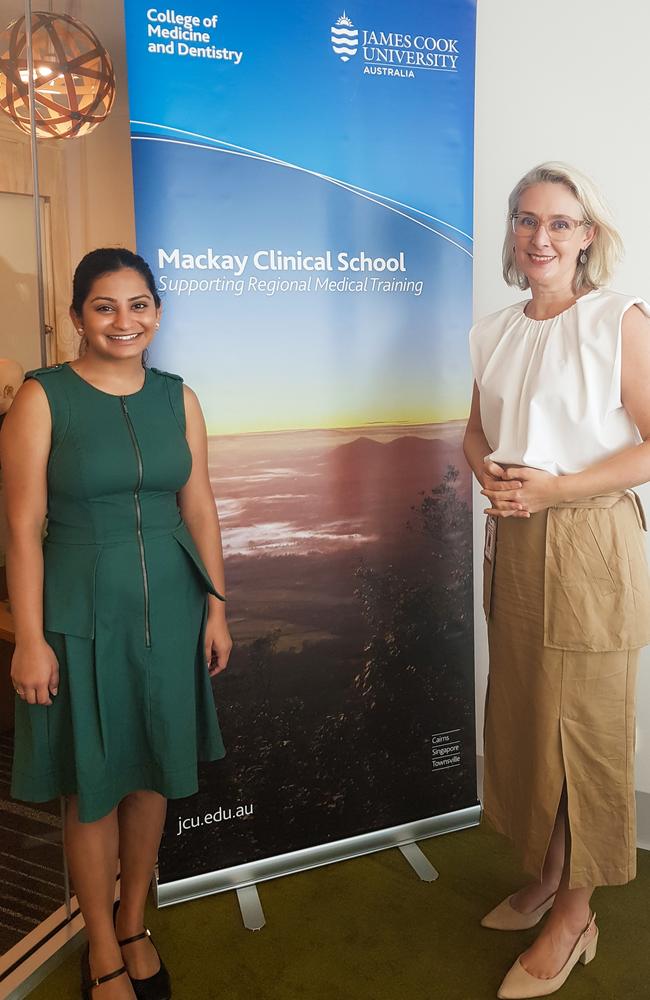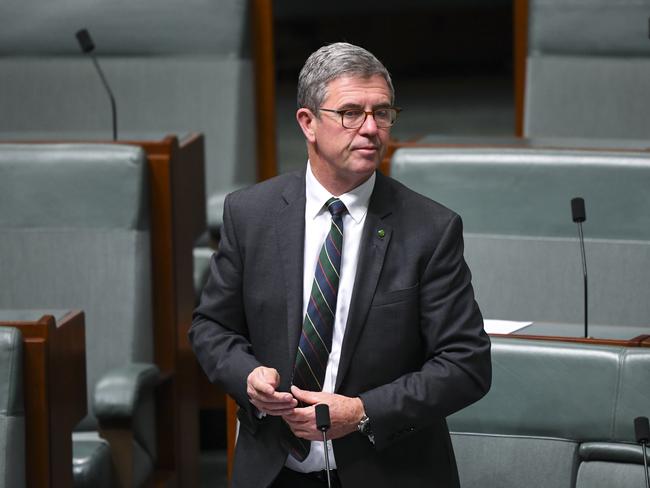James Cook University push for more medical student places, GP recruitment packages
A push for more medical students in North Queensland comes as a new plan is unveiled to make it easier to recruit doctors in regional centres. Here’s why both moves are critically important.
Mackay
Don't miss out on the headlines from Mackay. Followed categories will be added to My News.
A push for 80 more medical students in Mackay is part of a plan to help retain more graduates in our region.
James Cook University wants to grow student numbers at its Mackay Clinical School to meet the demands of the wider region but the plan depends on Commonwealth funding for 80 new placements.
The university included the plan in a recent submission to the Senate Community Affairs References Committee Inquiry as a solution for the provision of general practitioner and related primary health services in rural and regional Australia.
It comes as the Federal Government makes changes to GP packages to make it easier to recruit doctors for rural positions in towns such as Moranbah.

Capricornia MP Michelle Landry said this change meant rural practices could begin reaching out to overseas doctors who want to practise in the region from January 1, 2022.
Why we need more medical students in Mackay
Newly announced clinical school head Dr Elissa Hatherly said she was working with JCU Dean of Medicine and Dentistry, Professor Sarah Larkins, on expanding course offerings to medical students in years one, two and three in Mackay.
“Our plan for expansion is supported by our success to date in delivering a medical workforce for our region but is dependent on the government increasing the number of Commonwealth Supported Places in medical schools,” Dr Hatherly said.
“It is critical that such an investment directly benefits our region in the supply of a medical and GP workforce rather than expanding the supply of graduates pursuing careers in metropolitan areas.”

The clinical school currently has fifth and sixth year medical students studying full-time and has fourth year medical students on placement in the area.
“The opportunity to help grow our own medical workforce is really appealing because if we can get our local young people involved in health, whether it’s medicine or pharmacy or something else, they’ll hopefully stay in the region and help to care for our community,” Dr Hatherly said.
“The whole district, from the hinterland to the Whitsundays, needs more health professionals to support our community because we don’t have the access to health care that our counterparts in the south-east corner have.
“For instance, we offered first year JCU Pharmacy from this year, and that will be a program that we continue to expand. We also have dentistry students placed here and in Proserpine.”

A GP by trade, Dr Hatherly brings 20 years of experience to the role, including work with BreastScreen Queensland and Mackay Base Hospital’s Family Planning Clinic.
She replaces long-serving and highly respected Clinical School head Dr Mick Wohlfahrt, who was in the role for nine years.
“I love Mackay. I arrived here as a medical intern and have never left,” Dr Hatherly said.
“We shouldn’t be experiencing long wait times to see GPs or specialists, and certainly our indigenous peoples need more health care than our community is currently able to offer them.
“Mackay is getting bigger, so providing that local education will definitely help to shore up our medical workforce moving forward.”

JCU’s campus in Mackay is one of the university’s clinical training sites, with two campus locations providing students with extensive hands-on learning and clinical experience at both the Mater and Mackay Base Hospitals.
Mackay Hospital and Health Service chief executive Lisa Davies Jones said expanding the opportunity for medical students in all years to study in Mackay made sense.
“The health service enjoys a close working relationship with JCU and already has medical students on placement in the health service, with fifth and sixth year (final) medical students studying full-time at the JCU medical school,” she said.
“The opportunity for rural placements in our health service strengthens the training pipeline for new doctors to work in our hospitals as well as in general practice.
“Mackay Base Hospital is big enough to provide a broad range of experiences and has a diverse and interesting mix of clinical cases.

“It’s big enough to be challenged professionally, but small enough to know everyone
and to build close professional relationships.
“Recruitment is always a challenge in regional centres and we already have a ‘grow
our own’ approach with recruitment.
“It would be fantastic for more local young people to be able to stay in the region and
study close to home.”
A Mater Private Hospital Mackay spokeswoman said the Mater supported all initiatives that helped in developing local healthcare workforces.
“Securing the health workforce of the future by creating additional opportunities for young people to learn and train in the region where they live is an invaluable investment in the Mackay community,” she said.
JCU Deputy Vice Chancellor, Tropical Health and Medicine Professor Richard Murray said the university’s “approach of ‘from, in, with and for’ rural and regional communities delivers outcomes in terms of doctors for North Queensland”.
JCU delivers both undergraduate medical training and general practice training.
This integrated training model is being used to develop a skilled, fit-for-purpose health workforce to address the shortage of doctors in regional, rural, and remote communities.
Medicine students on placement experience general practice in towns such as Moranbah, Collinsville, Bowen, Proserpine and Sarina.
“It’s not just about getting medical experience, it’s about getting a good feel for what life is like as a rural or regional practitioner. The students love being in the small centres because they have the opportunity to be hands on,” Dr Hatherly said.
Plan to recruit more doctors for rural and regional areas
The Federal Government says changes made this week will help address a maldistribution of the health workforce around the country and will get more GPs, nurses and allied health professionals to areas where they are needed.
The government’s Distribution Priority Area classification identifies locations in Australia with a shortage of doctors.
Currently, only rural and remote (MMM 5-7) communities receive automatic DPA status with other MMM locations assessed annually to see whether the health services for the population meet a service benchmark.

This change offers automatic access to the DPA classification for regional and larger rural towns (MMM 3-4) to make it easier for areas to recruit more doctors.
Students who accepted a Commonwealth Supported Place in an Australian medical course in return for a commitment to work in a regional, rural and remote area at the end of their studies must also work in a DPA.
Federal Regional Health Minister David Gillespie said the DPA expansion would mean more regional and rural communities would have access to a GP in the short term.
“More rural and regional areas will be able to utilise the DPA system when recruiting doctors for their region, whether they be those who are wanting to move here from overseas or those young doctors who accepted a place in return for working in a regional area,” Dr Gillespie said.
“This change will help ensure rural and regional areas have a choice of more doctors to work in their local communities, leading to increased access to GP and primary care services for many thousands of Australians in regional and rural communities.”

The Federal Government says it will also invest in significant incentives for eligible doctors and nurse practitioners to practise in rural, remote or very remote areas of Australia, by eliminating all or part of their Higher Education Loan Program debt if they meet eligibility criteria.
Health Minister Greg Hunt said the government was acutely aware of the maldistribution of health workforce around the country and was implementing a range of policies to get more GPs, nurses and allied health professionals to areas where they are needed.
He said it was important to support doctors who genuinely committed to practising in regional and rural towns, offering continuity of care, instead of an over-reliance on locums.
“Incentivising doctors and nurse practitioners to live and work outside of metropolitan areas will help improve access to quality health care for regional, rural and remote communities,” he said.





